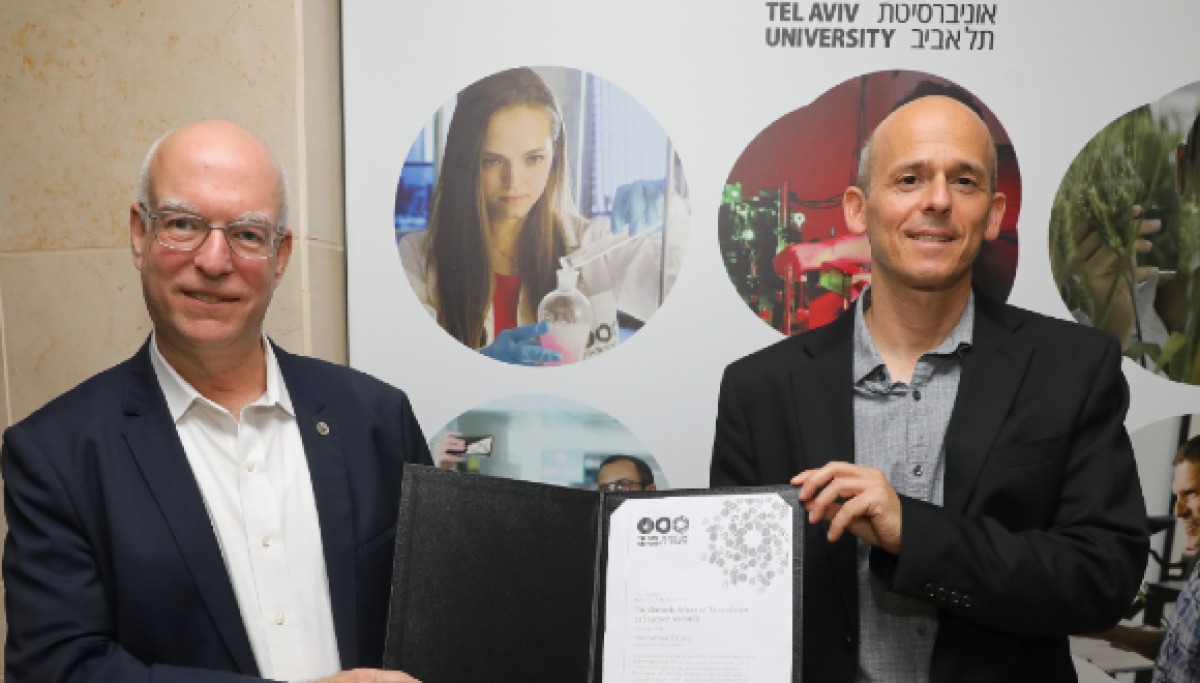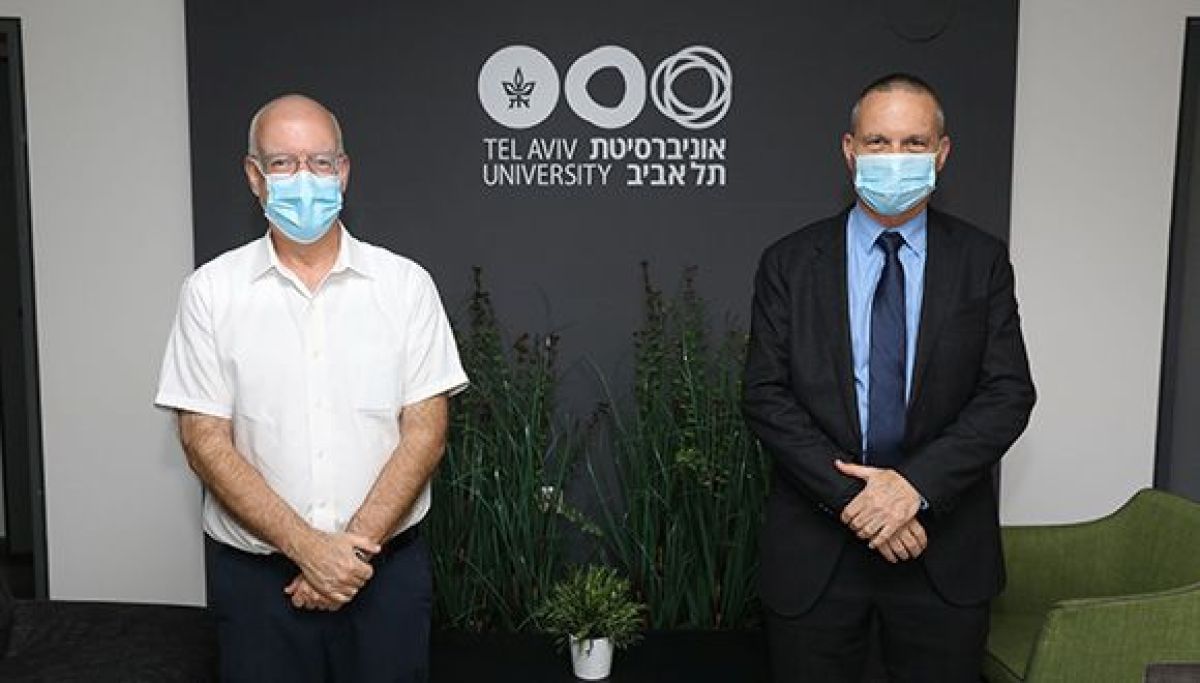Immunity Memory Cells Stay Stable Over Time After Recovery From COVID-19
Joint research between TAU and Hasharon Hospital (Rabin Medical Center) proposes the new possibility
Researchers of Tel Aviv University examined blood samples from 60 patients at Hasharon Hospital who had recovered from Corona, and found that memory B cells specific to the virus remain stable over time, but concurrently the antibodies in the blood decrease within just a few months. This finding prompted the researchers to raise the possibility that in the event of re-infection with the virus, symptomatic illness will be insignificant. The research was conducted by Dr. Yariv Wine of Tel Aviv University’s Shmunis School of Biomedicine and Cancer Research, and led by post-doctoral fellow Anna Vaisman-Mentesh, together with Dr. Dror Dicker, Director of the Department of Internal Medicine “D” at Hasharon Hospital, and department’s team.
They don’t forget so quickly
Since the SARS-CoV-2 is a new virus, there is as yet no data on immune memory over time among those recovered from the virus. In the current research, Dr. Wine and team checked the level of antibodies, as well as the B cell count in their group of subjects. As has been shown in other previous studies, the antibodies acting on the viral protein responsible for attaching itself to target cells in the host body, develop very quickly – but decay following recovery. In contrast, B cells, that remember the viral proteins and can efficiently reactivate upon reinfection, do not decline in recovered subjects over a period of six months.
“Corona is a serious illness and includes long-lasting side effects,” Dr. Wine explains. “For that reason, rehabilitation centers have been established for those recovering from Corona, such as the one at Hasharon Hospital, and it also enables us to continue examining blood samples even many months after recovery. From among the group of recovered patients who have volunteered to be part of the research, we collected blood samples at predetermined time intervals – 3 months after onset of disease, and again 3 months later. From the data thus gathered, we can say that over at least a 6 month time period, the subjects maintained a stable level of memory B cells specific to the viral protein. The significance of this is that if these subjects become re-infected, their immune system can quickly respond: B cells will create a secondary reaction which may prevent illness. On the other hand, due to the decay of the antibodies, those who have recovered can still be carriers of the virus, and perhaps also be able to infect others.”
Since the antibodies in the blood of those recovered from Corona decay with time, and in some cases even fall below detection threshold just 3 months after recovery, Dr. Wine and his team fear that serological surveys may be providing an inaccurate picture to decision-makers regarding spread of infection.
Concern over problem in reliability results in serological surveys
“Health organizations and the media talk a lot about serological surveys that check the level of antibodies in the blood, as a way of inferring the spread of disease in the population,” Dr. Wine says. “These surveys are very important, but in the light of the data on the decay of antibodies among recovered subjects, we might get a negative result when testing those who were infected in the past. If the antibodies are not maintained over time, and those who have recovered can still carry the virus and infect others, it is challenging to extrapolate from these surveys the breadth of infection spread in the population.”
Dr. Dicker adds that we are in a process of ongoing learning about Corona virus clinical illness when some recovered subjects still carry the virus. These findings add to our understanding of chronic illness from Corona and may shed light on future capabilities of the immune system of these recovered subjects.



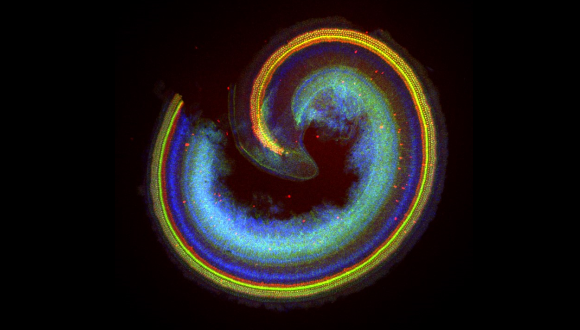
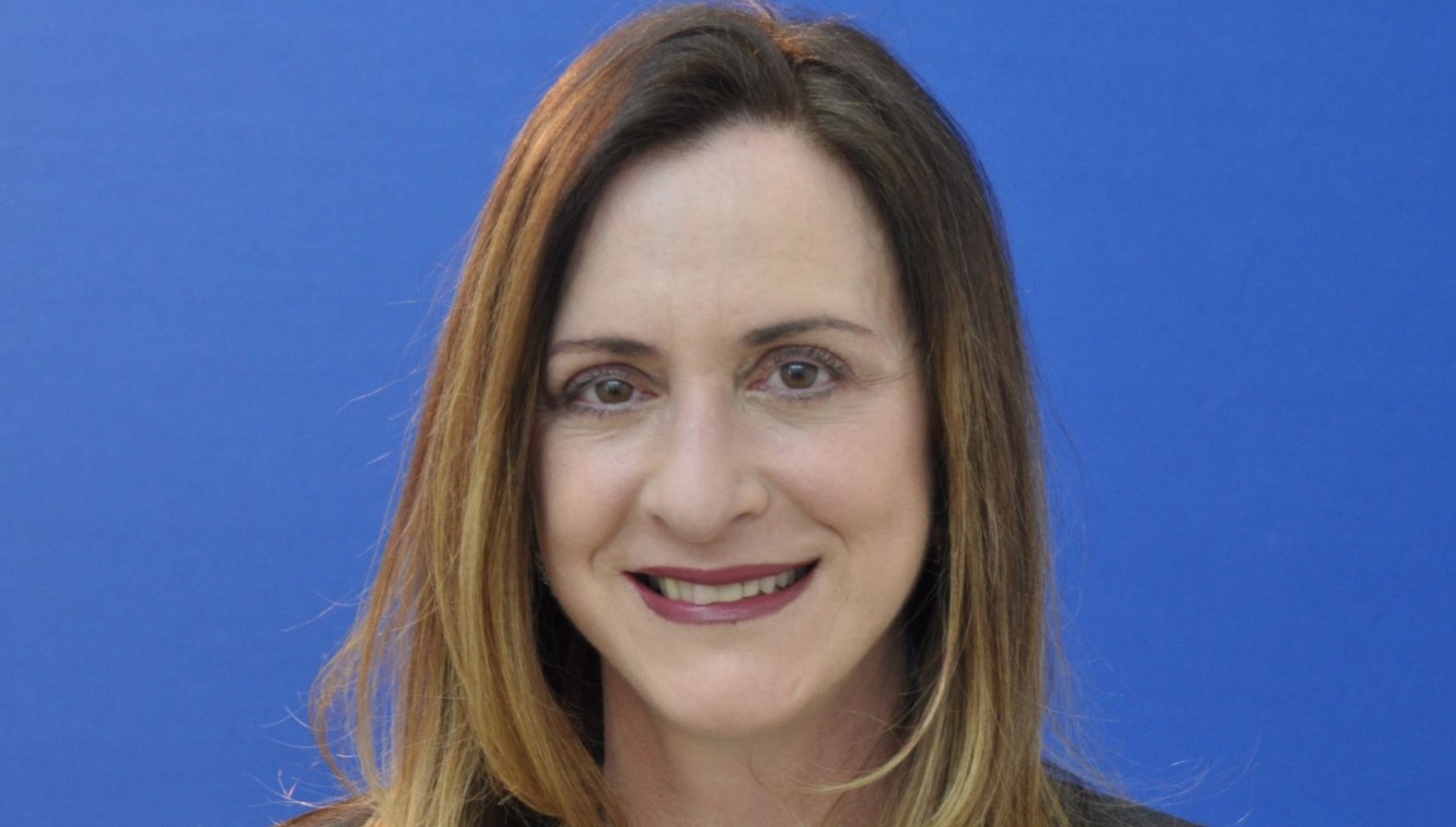
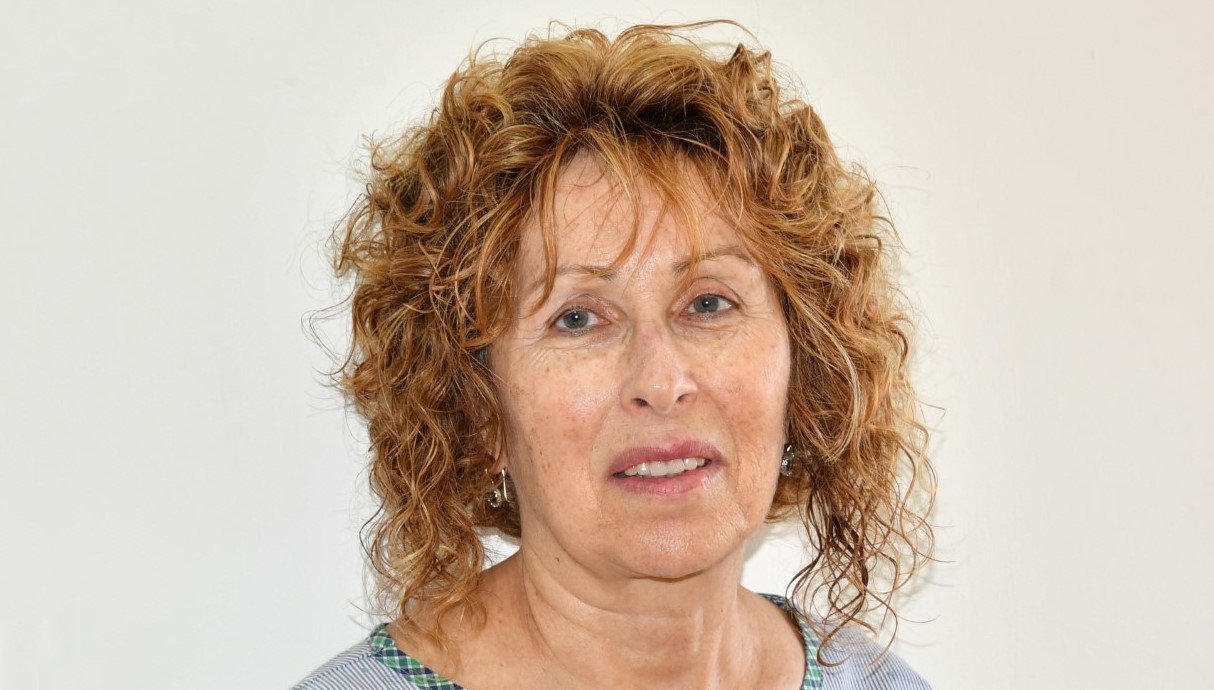

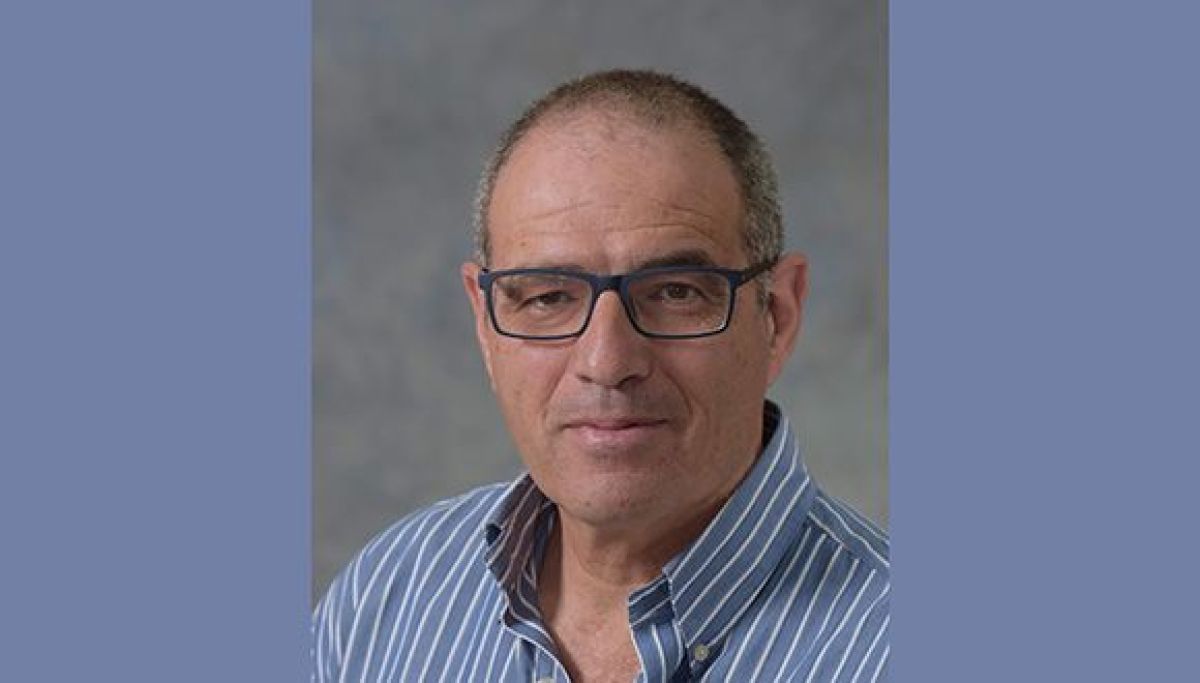
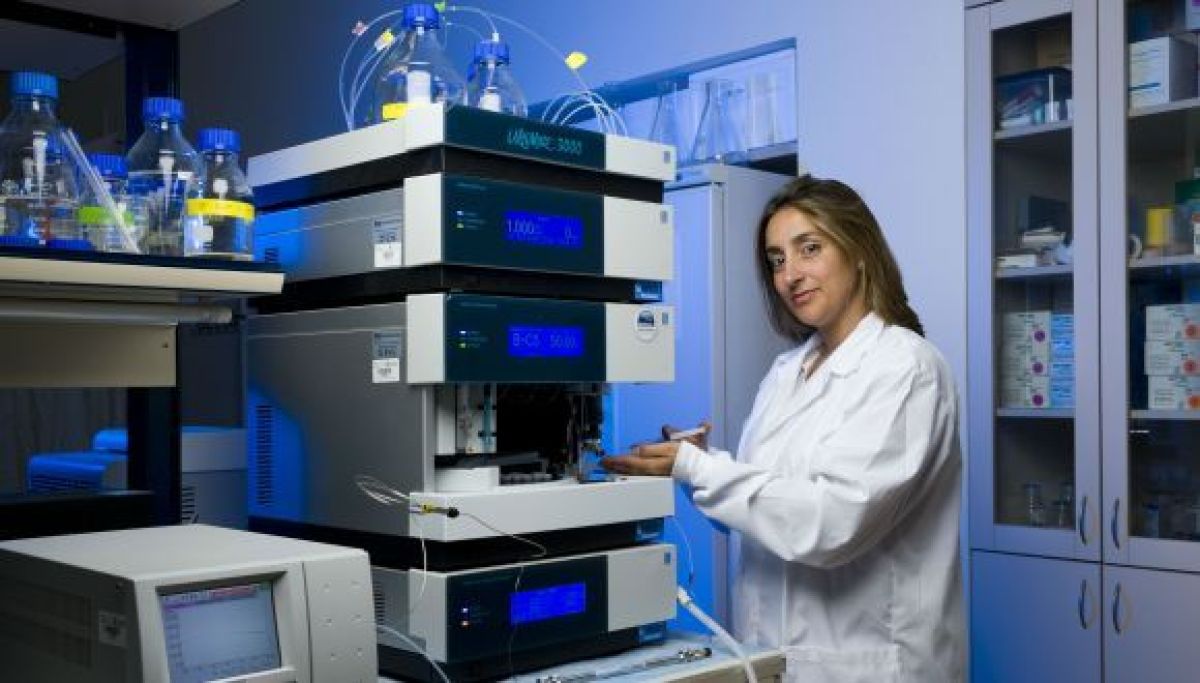
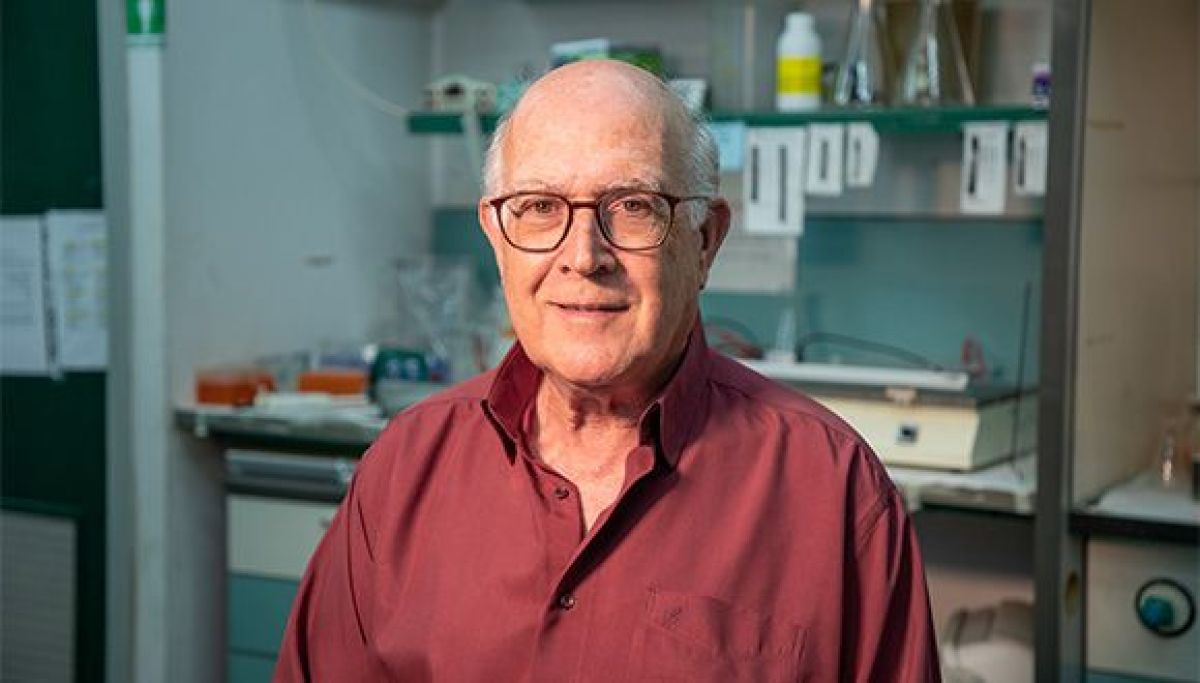
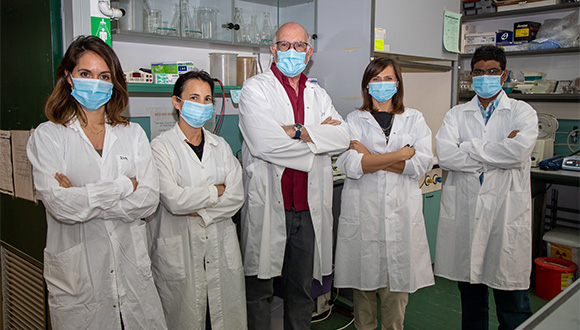 Prof. Gershoni’s Lab team (Photographer: Moshe Bedarshi)
This study is anchored in more than 30 years of research on the interaction of RNA viruses with their receptors and the immune response against them, noted Professor Tal Pupko, Head of the Shmunis School at TAU. “The 3M grant will dramatically accelerate the pace of research for overcoming COVID-19,” said Professor Pupko, adding that Tel Aviv University was particularly proud to be included in this important global initiative by 3M.
“Science is at the heart of 3M and we are committed to advancing the rapid study of this virus as part of our continued effort to combat the COVID-19 pandemic,” said Isabelle Zadikov-Carp, 3M Israel Country Leader. “It’s important that 3M holds true to its core values by supporting our communities and improving lives. We hope that the grant to TAU will facilitate the development of an effective vaccine and we will be keenly following the progress and outcomes of Professor Gershoni’s research with interest.”
Featured image: Professor Jonathan Gershoni (Photographer: Moshe Bedarshi)
Prof. Gershoni’s Lab team (Photographer: Moshe Bedarshi)
This study is anchored in more than 30 years of research on the interaction of RNA viruses with their receptors and the immune response against them, noted Professor Tal Pupko, Head of the Shmunis School at TAU. “The 3M grant will dramatically accelerate the pace of research for overcoming COVID-19,” said Professor Pupko, adding that Tel Aviv University was particularly proud to be included in this important global initiative by 3M.
“Science is at the heart of 3M and we are committed to advancing the rapid study of this virus as part of our continued effort to combat the COVID-19 pandemic,” said Isabelle Zadikov-Carp, 3M Israel Country Leader. “It’s important that 3M holds true to its core values by supporting our communities and improving lives. We hope that the grant to TAU will facilitate the development of an effective vaccine and we will be keenly following the progress and outcomes of Professor Gershoni’s research with interest.”
Featured image: Professor Jonathan Gershoni (Photographer: Moshe Bedarshi)
